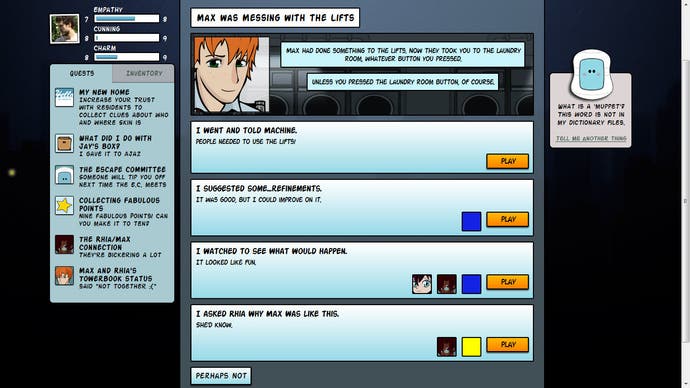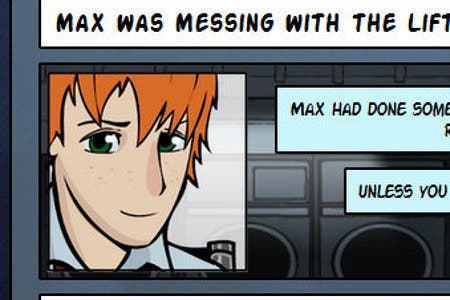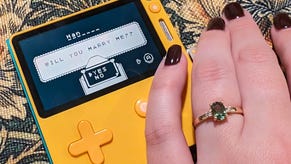Where does an interactive story game by ChildLine fit in?
A look at a curiosity designed to improve self-esteem and emotional resilience.
Where does all this fit within the world of gaming, and does it work?
ChildLine, the free and applauded child counselling service, is about to launch a new browser game called Machine Cares, which is supposed to improve your self-esteem and emotional resilience.
The game will launch properly on 10th September, to coincide with World Suicide Prevention Day. But it's available to play now.
A company called Failbetter Games made Machine Cares using new Story Nexus technology, which creates interactive stories in web browsers.
Machine Cares plays out in comic book style. You are a teenage newcomer to a tower block run by Machine - literally a machine that talks. You're on your own, in terms of family, but you soon meet other people in the building.

The game's based around a mystery that concerns the disappearance of Jay, who everyone thinks you're replacing. How you interact with the other characters and level up your Empathy, Cunning and Charm dictates dialogue options that are open to you.
That dialogue, by the way, is snappy and mature. Machine Cares is for children no younger than eight years old. [The NSPCC has been in touch to say that, as you have to link a Facebook account, you'll need to be 13 years old to play. "We actually recommend the game to older teens," a spokesperson added.]
I played for half-an-hour, clicking manically to see if I could unravel the plot and improve my own self-esteem and emotional resilience. But I didn't get there; or, I didn't notice if I did.
There looked to be much more story left to uncover than what I saw.
There's an unflinching plot underneath the surface of Machine Cares, and I assume the teachings are in how you decide to deal with the other characters and tackle serious situations. Is Machine a metaphor for an abusive parent? Are the other children the various possible reactions to that abuse? I don't know.
Gauging the success of Machine Cares works will be tricky, just like the topics it addresses. And for doing that, Machine Cares is at least a valuable idea.
If you have some spare time, I'd be really interested to hear what you think.








